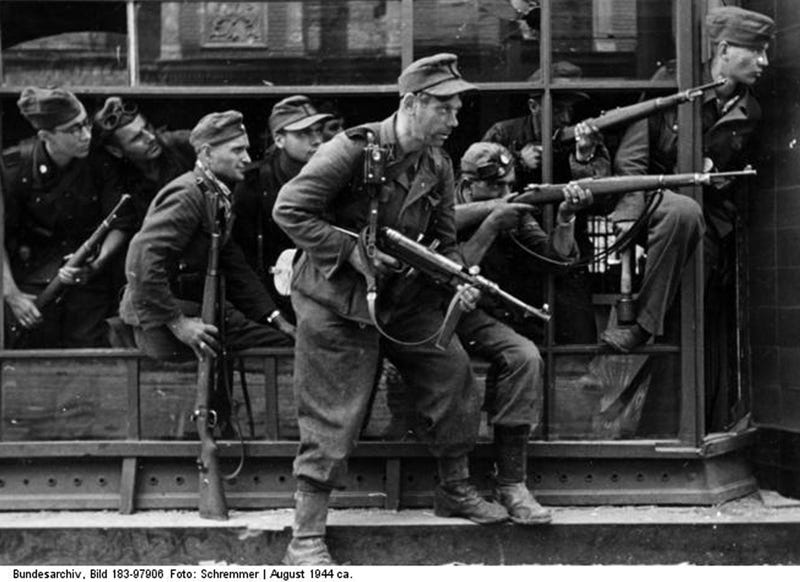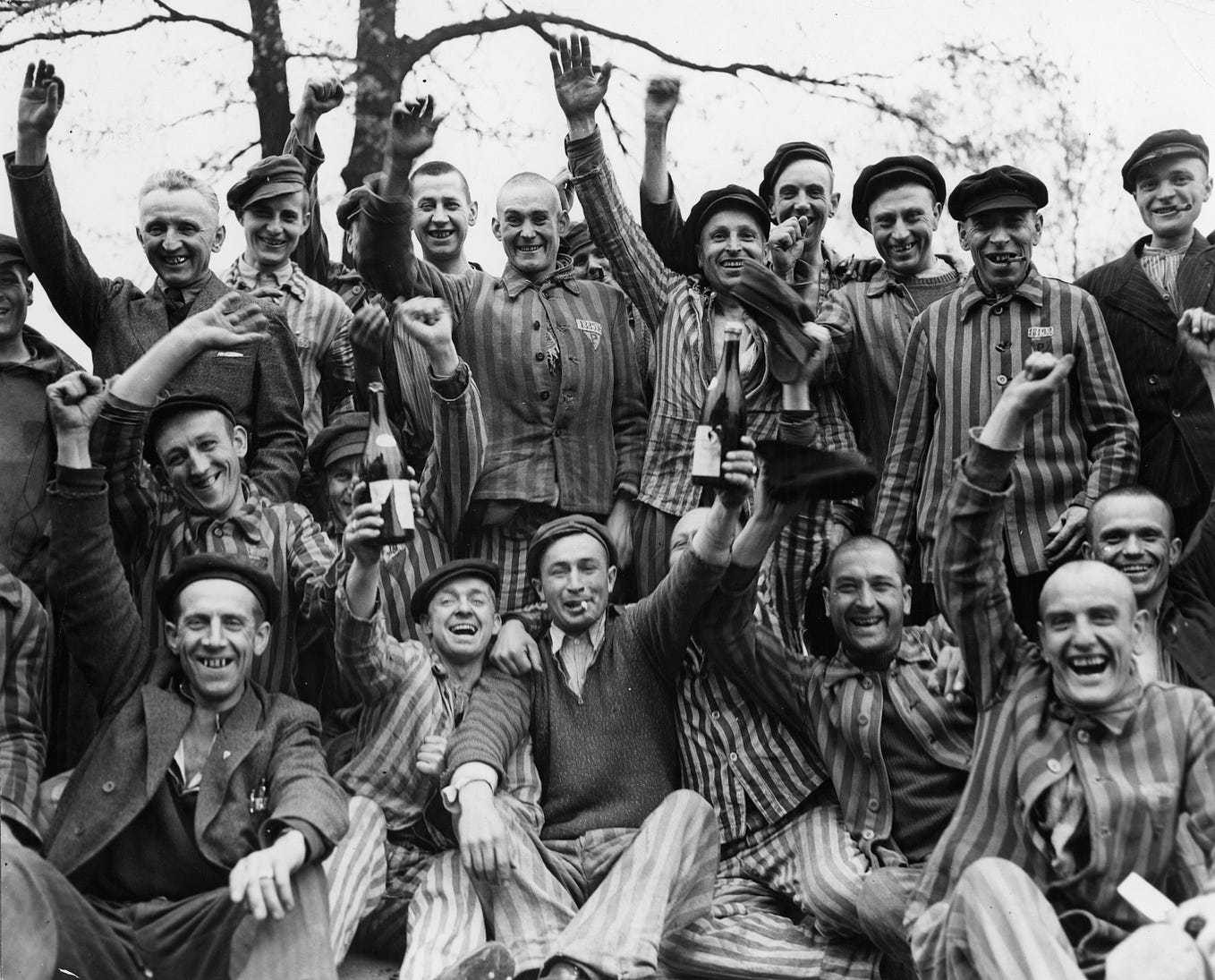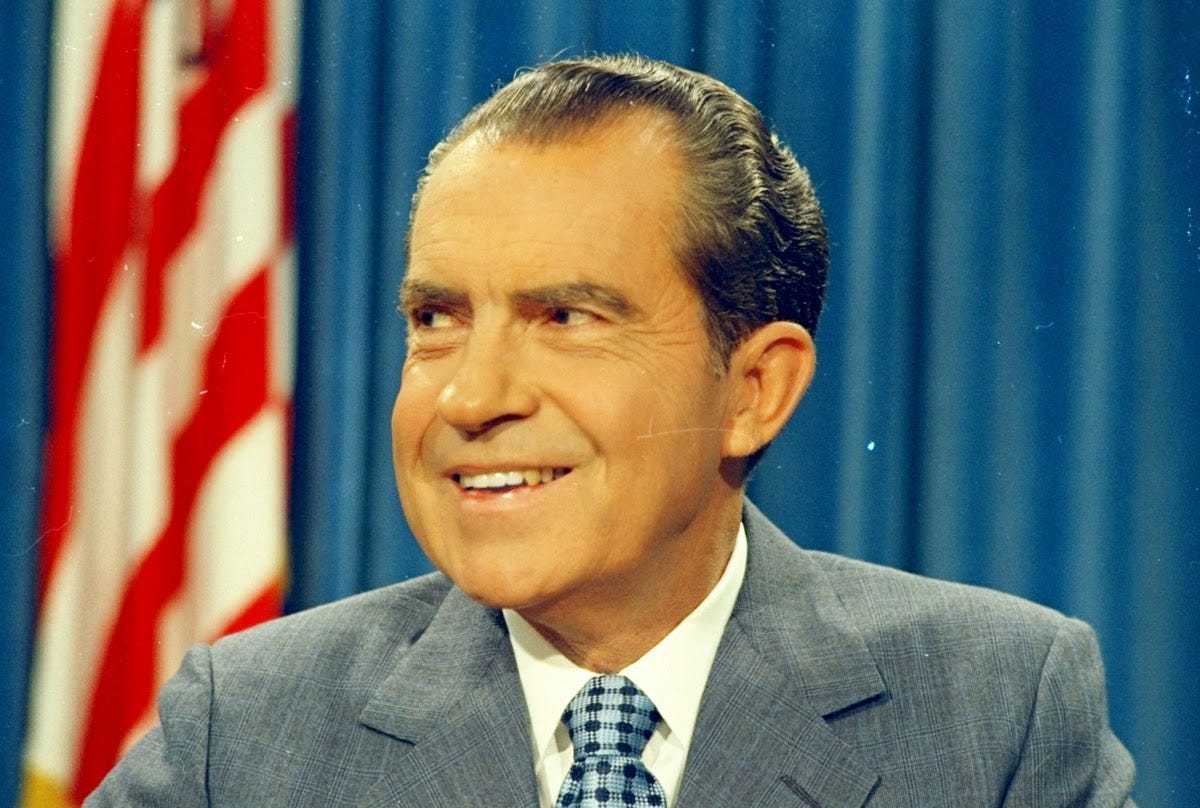Weimar Germany and today’s America: do they compare?
Rhetoric finds parallels, but the facts won’t cooperate
America is going through a very difficult phase right now. Faith in institutions has declined to levels that are truly depressing, violence seems to be at epidemic levels, the threat of terrorism is growing, and the 2016 election campaign has truly been a carnival of surreality. The opinion is being voiced that the America of today is beginning to resemble Weimar Germany in the 1920s — and considering that Weimar ended with the advent of Adolf Hitler, the comparison is truly frightening. But how fair are those comparisons? In truth, there actually are some comparisons, but there are key differences too.
Difference: Weimar was a hastily thrown-together government while America has a long constitutional tradition (and identity).
The end of the First World War was truly a shock to most Germans. They had been told for years that Germany was winning the war under the strong leadership of the Kaiser. But within just a few months after the guns fell silent, Germany was forced to accept the humiliating Treaty of Versailles and the Kaiser was pushed out of office and into exile, a parliamentary democracy taking his place. The new government had not been formed through a popular revolution (though uprisings on the left and right were happening), and there certainly hadn’t been a referendum; a bunch of politicians had just gotten together and made it happen.
Weimar Germany, therefore, was very much an artificial construct that was unstable right from the start. It hobbled through the 1920s, battered by hyperinflation, violent clashes between the extremes of left and right (who also attempted to overthrow the government), and economic pressure from the demands for war reparations by the victorious Allied powers. Riots were commonplace, poverty was widespread, and there just wasn’t much acceptance of the government.
America, though, has not had a break in continuity. Tracing back its history to the Revolution, one doesn’t find a date where the old system was destroyed and replaced with something flimsy and new. There are two centuries of legal precedent, cultural and political identity, and institutional continuity. Despite what you read on Facebook, there is no equivalent in America to the Nazi and Communist Parties of the Weimar era.
And by the way, there’s a chain of command in the US military regarding the launch of nuclear weapons; no president can simply “push the button” on a whim and destroy the world. The Pentagon would certainly refuse such an order.
Similarity: the political system is fragile and in transition.
In America, things have been done a certain way for quite some time. You can identify the change from freewheeling, unregulated capitalism toward a managed economy with the New Deal in the 1930s, and then back again, more gradually, from the 1980s through today. What caused those transition was the sense that the government and business leaders weren’t doing their jobs. And now, in 2016, there is a growing sense that such is the case again. A dangerous gap has opened up between the very wealthy and the rest of the population, increasing numbers of whom are beginning to give up on the prospect of improving their standing on the socioeconomic ladder. The political system is also triggering broad anger as well, creating the impression that it only benefits hugely wealthy campaign donors and is unresponsive to the needs of the populace.
However, the creation of the New Deal shows that dramatic institutional change can happen quickly and peacefully. Similarly, the deregulation of business and the loosening of campaign finance laws occurred over time, and again without violence. It is America’s greatest strength: the ability to change course drastically without a revolution. The same cannot be said for Weimar Germany, which, despite having an elected legislature, was not really able to undergo major reform. Politically it was highly divided, with extremists of every type shouting for space with royalists who demanded a return of the Kaiser. The divisions were real and wound up tearing the state apart rather than steering it in a new direction.
Huge difference: there had been no Hitler before Weimar.
A major cause of the First World War, at least in the opinion of your humble narrator, was plain, old-fashioned nationalism. From the vantage point of the 21st Century, it seems absurd that people were (and still are) willing to employ war and genocide to assuage their patriotic zeal. In that sense, the Germans of 1920s Weimar were still innocent. They could not have known what extremes of destruction and suffering could be wrought by the then-buffoonish hysteric who wasn’t even German enough to be permitted a seat in the legislature. But we know, and we know very well where extremism can lead. But even before contemplating the advent of an American Hitler, we’d have to imagine the impossibility of a broad section of the American people embracing the discarding of the Constitution, the Bill of Rights, the rule of law and a free press. There’s far more to fascism than the election of one person, and it’s impossible to imagine Americans choosing to emulate Hitler. Would all the members of the media begin following a centrally-ordered party line? Would academics agree to twist their curricula to match the ideology of an exalted Leader? Would the military abandon two centuries of tradition only to throw their live away in pointless wars of extermination? The list goes on and on: the countless ways in which the Nazi Party took ownership of the machinery of the state and the impossibility of imagining it happening in today’s highly-opinionated social media-mad America. The military of Weimar was a state within a state and yearned to reclaim its lost might and standing, while the American military is already more mighty than any other fighting force in the history of the human race.
In short, while it’s easy to worry about the danger posed by a particular candidate (plus assorted supporters), it is highly unlikely that anyone living in America today is the herald of a new “superpower fascism.” Too many unlikely things need to happen for a dictatorship to take form. If fact, such an attempt might be something to be welcomed: it could be the catalyst to repel, then unite Americans in a way that hasn’t been seen in half a century. A mass movement to toss out an incipient dictator might be just the thing to start a new and happier chapter in American history.








